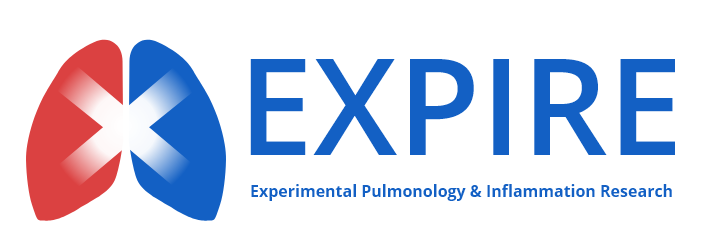Allergic asthma and Chronic Obstructive Pulmonary Disease (COPD) are literally breath-taking diseases. These respiratory diseases are characterized by chronic airway inflammation, hyperreactivity and remodeling caused by an abnormal reaction to respectively inhaled allergens and noxious gases, including cigarette smoke. These structural changes cannot be reversed by the current therapy.The pathophysiology of allergic asthma and COPD is different and still incompletely understood. Therefore, novel insight in the molceular and cellular mechanisms underlying asthma and COPD is needed.
We propose that the airway epithelium plays a critical role in the initiation of these airway diseases, as it is the first line of defence against inhaled environmental insults, including allergens, virus and cigarette smoke. Moreover, it is not only a physical barrier but also plays a key role in initiating and modulating immune/ inflammatory responses as well as tissue repair/remodeling processes in response to these insults, especially when damaged. Importantly, not all individuals develop asthma or COPD upon exposure to these insults, suggesting the involvement of a genetic component. Of interest, many of the susceptibility genes that have been identified for asthma and COPD are expressed in the airway epithelium.
Therefore, a major line of research in our lab is focused on the effects of allergens and cigarette smoke on airway epithelial cells, their communication with immune cells, including Th2 lymphocytes, and other structural cells involved in tissue repair, and the consequences for the development of allergic asthma and COPD. Mouse models and human clinical studies are used to translate these in vitro findings to the real life situation.
Our laboratory is part of the Groningen Research Institute for Asthma and COPD ( www.griac.nl ), in which different basic and clinical disciplines work closely together in a scientifically stimulating environment to translate research findings from bedside to bench and back.
